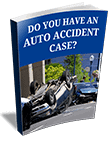Probate Law And Its Common Misconceptions
In probate law, the number one misconception people have about probate is that having a will means no probate. All wills go through the probate process, whether the will was handwritten or typed, because it is solely the judge who can sign over the assets to the beneficiaries.
Here are some of the other most common misconceptions on probate:
1.If I die without a will, my property goes to the government
In the event of death without a will, your property is very unlikely to go to the government as state law provides the hierarchy of beneficiaries that your property will be pass on to, though dying intestate is highly discouraged. A will specifies what property you want to be transferred to whom, your executor or the person who administers the estate through probate and distributes your property, and any other wishes or restrictions on your beneficiaries. Your beneficiaries are the persons who are named in your will who will receive property in the event of your death.
Designated beneficiaries are provided for by state intestacy laws while the court will appoint an administrator to oversee the payments of your debts and ensure the property distributions. The administrator is someone who the majority of your heirs nominates and the court accepts. State intestacy laws typically leave your property to your surviving spouse and in the event that there is no surviving spouse, to your children (issue) or per stirpes commonly known as right by representation. In the event there is no issue, state laws provide that property will pass to other family members. Because intestacy laws are broad in nature, it is only in the event where there is no family member whatsoever at the time of your death that your properties will go to the state government.
2.Probate is expensive and my estate will pay enormous taxes
In general, probate is not very expensive. It is only when large complex estates or if there is litigation over your estate, such as beneficiaries questioning the will, executor, or property distributions probate process can be expensive. In addition, there is an exemption from the estate tax “death tax” where your estate will have to consist of millions of dollars in assets before the estate tax applies. In fact, in some states, attorneys are permitted to charge a percentage of the gross assets as fees, but this varies depending on the state and your engagement letter with the probate attorney.
The executor will pay for the attorney’s fees, initiate the probate process, provide proper notice so that creditors may file claims, and then payment of those claims from the estate assets. After which, then the executor will distribute the property to your beneficiaries in accordance with the terms of your will.
3.A trust is a simpler and cheaper mechanism than a will and probate
Indeed, there are benefits to using a living trust and avoiding probate. A living trust allows you to transfer all or some of your assets to a trust during your lifetime and use the income generated for your benefit and enjoyment. Upon death, the terms of the trust will dictate property uses and the use of assets for various named beneficiaries. Though this process avoids probate because there is no will, a living trust can be expensive and a complex arrangement. There are specific instances where you will find that a living trust may be preferable to a will and vice-versa. These will be distinct facts and circumstances hence, speaking to a qualified attorney for an advice on which would be the appropriate solution for your affairs is highly encouraged.

